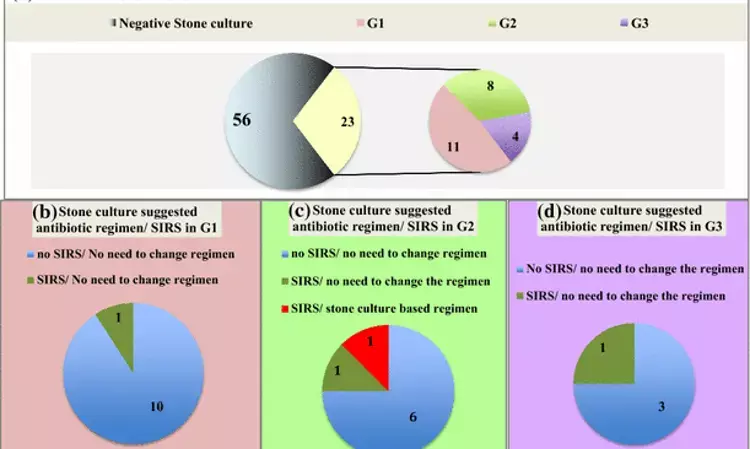- Home
- Medical news & Guidelines
- Anesthesiology
- Cardiology and CTVS
- Critical Care
- Dentistry
- Dermatology
- Diabetes and Endocrinology
- ENT
- Gastroenterology
- Medicine
- Nephrology
- Neurology
- Obstretics-Gynaecology
- Oncology
- Ophthalmology
- Orthopaedics
- Pediatrics-Neonatology
- Psychiatry
- Pulmonology
- Radiology
- Surgery
- Urology
- Laboratory Medicine
- Diet
- Nursing
- Paramedical
- Physiotherapy
- Health news
- Fact Check
- Bone Health Fact Check
- Brain Health Fact Check
- Cancer Related Fact Check
- Child Care Fact Check
- Dental and oral health fact check
- Diabetes and metabolic health fact check
- Diet and Nutrition Fact Check
- Eye and ENT Care Fact Check
- Fitness fact check
- Gut health fact check
- Heart health fact check
- Kidney health fact check
- Medical education fact check
- Men's health fact check
- Respiratory fact check
- Skin and hair care fact check
- Vaccine and Immunization fact check
- Women's health fact check
- AYUSH
- State News
- Andaman and Nicobar Islands
- Andhra Pradesh
- Arunachal Pradesh
- Assam
- Bihar
- Chandigarh
- Chattisgarh
- Dadra and Nagar Haveli
- Daman and Diu
- Delhi
- Goa
- Gujarat
- Haryana
- Himachal Pradesh
- Jammu & Kashmir
- Jharkhand
- Karnataka
- Kerala
- Ladakh
- Lakshadweep
- Madhya Pradesh
- Maharashtra
- Manipur
- Meghalaya
- Mizoram
- Nagaland
- Odisha
- Puducherry
- Punjab
- Rajasthan
- Sikkim
- Tamil Nadu
- Telangana
- Tripura
- Uttar Pradesh
- Uttrakhand
- West Bengal
- Medical Education
- Industry
Larger stones, positive urine culture and higher Comorbidity Index predict urinary septic shock after PCNL: Study

Larger stones, positive preoperative urine culture and higher Comorbidity Index may predict urinary septic shock after PCNL suggests a study published in the International Brazilian Journal of Urology.
The study was done to identify risk factors for urinary septic shock in patients who underwent percutaneous nephrolithotomy (PCNL). Data from PCNL procedures performed between January 2009 and February 2020 were retrospectively analyzed. The study included all patients over 18 years old with kidney stones larger than 15 mm who underwent PCNL. Patients who underwent mini-PCNL or combined surgeries, such as ureteroscopy or bilateral procedures, were not included in the study. Logistic regression was conducted to determine the risk factors for urinary septic shock within 30 days post-operation in patients who underwent PCNL. RESULTS: Urinary septic shock was observed in 8 out of the 1,424 patients analyzed (0.56%).
The presence of comorbidities, evaluated using the Charlson Comorbidity Index (CCI) (OR 1.46 [CI 95% 1.15-1.86], p=0.01), larger stones (41.0 mm [IQR 30.0-47.5 mm] vs. 24.0 mm [IQR 17.0-35.0 mm], OR 1.03 [CI 95% 1.01-1.06], p=0.04), and a positive preoperative urine culture (OR 8.53 [CI 95% 1.71-42.45], p < 0.01) were shown to significantly increase the risk of postoperative urinary septic shock. Patients with a CCI > 2, larger stones (≥ 35 mm), and a positive preoperative urine culture were at even higher risk of urinary septic shock (OR 15.40 [CI 95% 1.77-134.21], p=0.01). Patients with larger stones, positive preoperative urine culture, and a higher CCI are at risk for urinary septic shock after PCNL. These findings are of utmost importance for optimizing the perioperative care of these patients to prevent life-threatening complications.
Reference:
Danilovic, Alexandre, et al. "High-risk Patients for Septic Shock After Percutaneous Nephrolithotomy." International Braz J Urol : Official Journal of the Brazilian Society of Urology, vol. 50, no. 5, 2024, pp. 561-571.
Dr. Shravani Dali has completed her BDS from Pravara institute of medical sciences, loni. Following which she extensively worked in the healthcare sector for 2+ years. She has been actively involved in writing blogs in field of health and wellness. Currently she is pursuing her Masters of public health-health administration from Tata institute of social sciences. She can be contacted at editorial@medicaldialogues.in.
Dr Kamal Kant Kohli-MBBS, DTCD- a chest specialist with more than 30 years of practice and a flair for writing clinical articles, Dr Kamal Kant Kohli joined Medical Dialogues as a Chief Editor of Medical News. Besides writing articles, as an editor, he proofreads and verifies all the medical content published on Medical Dialogues including those coming from journals, studies,medical conferences,guidelines etc. Email: drkohli@medicaldialogues.in. Contact no. 011-43720751


